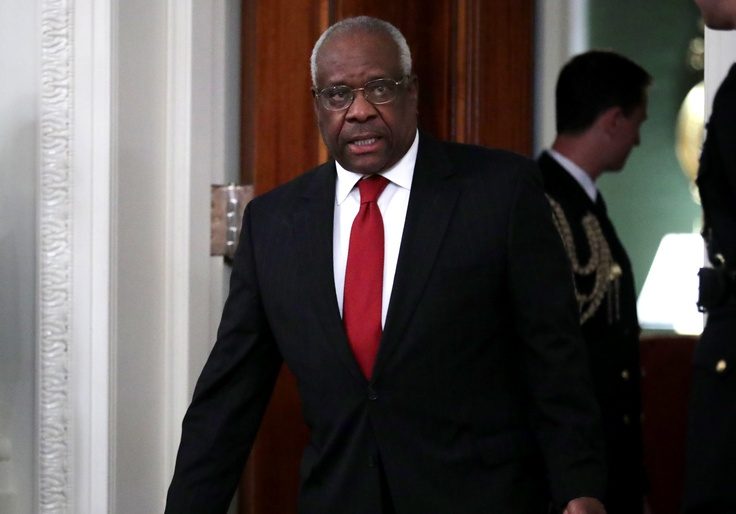Comments from Supreme Court justice Clarence Thomas on Monday will embolden opponents of major tech companies. In a case over whether President Joe Biden can block Twitter users from his personal account, Thomas wrote that Section 230, a federal law that protects online platforms from liability for content moderation, may violate the First Amendment.
Thomas's concurring opinion in Biden v. Knight First Amendment Institute suggested that major social media companies could be treated as both "common carriers" and as "places of public accommodation," two designations that would restrict platforms' ability to bar certain speech. "Even if digital platforms are not close enough to common carriers," Thomas said, "legislatures might still be able to treat digital platforms like places of public accommodation."
The case addresses whether a government official—in this case, Biden—can block third-party accounts from his personal account if it is at times also used to announce official actions and policies. It mirrors a case brought by the same institute against the Trump administration, in which the court ruled Trump had to unblock third-party accounts.
Though Thomas's opinion does not affect the outcome of Knight, it comes as a welcome surprise for advocates of greater controls on social media platforms and their ability to restrict users. Multiple state legislatures have floated restrictions on major social media platforms. Those restrictions have largely been viewed as not feasible, since Section 230 protects the ability of private platforms to make decisions about what content they host. But Thomas cited an argument that, when states pass laws barring social media censorship, Section 230 itself may violate the First Amendment by preempting those state laws.
"Justice Thomas is right: Big Tech's massive power to deliver and control the information flow in America gives it 'common carrier' status," said Mike Davis, founder of the anti-230 Internet Accountability Project. Google, Amazon, Facebook, and Twitter "have a different responsibility than other companies—the responsibility to avoid viewpoint discrimination and to protect the free-speech rights of its users."
Legal scholar Eugene Volokh, whose explanation of this argument was cited by Thomas, said that the justice's reading would face an uphill battle but that it was not on its face implausible. "If I had to bet money, I would guess the courts would say Section 230 simply protects platforms' right to exclude people from their property," Volokh told the Washington Free Beacon. He also noted that social media platforms have much more room to maneuver in how they choose to recommend or promote material, even if they are required to host certain material. But several cases cited by Thomas suggest states can designate private entities as common carriers and regulate them accordingly.
Thomas ended by arguing that, "as Twitter made clear, the right to cut off speech lies most powerfully in the hands of private digital platforms."
The case is No. 20-197 Biden v. Knight First Amendment Institute.
